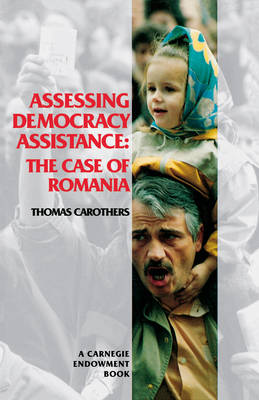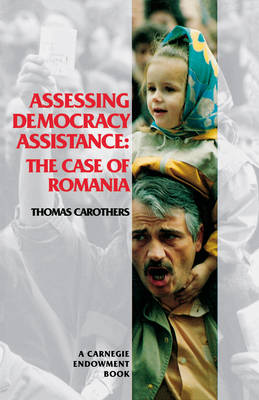
- Retrait gratuit dans votre magasin Club
- 7.000.000 titres dans notre catalogue
- Payer en toute sécurité
- Toujours un magasin près de chez vous
- Retrait gratuit dans votre magasin Club
- 7.000.0000 titres dans notre catalogue
- Payer en toute sécurité
- Toujours un magasin près de chez vous
Description
In recent years, assistance aimed at promoting democracy abroad has become a major component of U.S. foreign aid and of the U.S. government's post-Cold War policy of seeking to enlarge the international community of democratic nations. Despite its rapid growth, however, democracy assistance remains poorly understood in practice and its value is frequently questioned.
This landmark study, an examination of U.S. democracy assistance efforts in Romania, is the first comprehensive analysis of the workings--and failings--of U.S. democracy assistance in one country. Based on the author's extensive field research, the study provides widely applicable answers to key questions about the value, strategies, methods, and future of such assistance.
Spécifications
Parties prenantes
- Auteur(s) :
- Editeur:
Contenu
- Nombre de pages :
- 144
- Langue:
- Anglais
Caractéristiques
- EAN:
- 9780870031021
- Date de parution :
- 02-03-10
- Format:
- Livre broché
- Format numérique:
- Trade paperback (VS)
- Dimensions :
- 153 mm x 229 mm
- Poids :
- 258 g

Les avis
Nous publions uniquement les avis qui respectent les conditions requises. Consultez nos conditions pour les avis.






